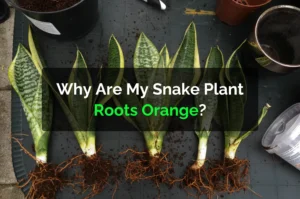Snake plants (Sansevieria), also known as “Mother-in-law’s Tongue,” are popular for their striking looks and easy maintenance. However, if you have curious little pets like mice around, you might wonder: Is a snake plant poisonous to mice? In this article, we’ll explore whether snake plants are toxic to mice, the signs of toxicity, and what you should do if a mouse chews on your plant.
Are Snake Plants Toxic to Mice?
Yes, snake plants are mildly toxic to mice. Snake plants contain natural chemical compounds called saponins. These act as a defense mechanism for the plant, deterring pests, fungi, and animals. When a mouse chews or eats parts of a snake plant, the saponins can cause digestive upset and other mild symptoms.
While a small nibble is unlikely to be fatal, consuming larger amounts may lead to reactions such as:
- Vomiting
- Diarrhea
- Lethargy
In rare cases, if left untreated, it can cause dehydration or other health risks.
Why Snake Plants Are Toxic: Understanding Saponins
Saponins are the primary reason behind the snake plant’s toxicity. They serve as a natural pesticide, making the plant less appealing to animals and insects. When ingested, saponins irritate the digestive systems of small animals, including mice, rats, cats, and dogs.
Effects of saponins on mice:
- Stomach upset
- Diarrhea or vomiting
- Drooling or loss of appetite
- Dehydration if diarrhea persists
Because of their small size, mice are especially sensitive to plant toxins.
Signs Your Mouse May Have Eaten a Snake Plant
If you suspect a mouse has nibbled on your snake plant, watch for these signs:
- Drooling or foaming at the mouth
- Diarrhea or softer stool
- Lack of appetite
- Lethargy or reduced activity
- Gradual weight loss
In most cases, symptoms are mild and resolve naturally if only a small amount was consumed. However, if a larger portion was eaten, veterinary attention might be necessary.
How to Protect Mice from Snake Plants
If you have pet mice or wild mice visiting your home, use these simple tips to keep them safe:
1. Keep Plants Out of Reach
Place snake plants on high shelves, in hanging baskets, or in rooms inaccessible to mice.
2. Use Barriers
Consider using mesh covers or glass terrariums around your plants if mice are present indoors.
3. Monitor Plant Damage
Check your snake plants regularly for bite marks or missing leaves. Catching the problem early prevents serious issues.
4. Offer Safe Alternatives
Give your pet mice safe, chewable treats like hay, apple sticks, or approved herbs to reduce their interest in houseplants.
What to Do If a Mouse Eats a Snake Plant
If you notice or suspect that a mouse has chewed on a snake plant:
- Remove access to the plant immediately.
- Monitor the mouse for symptoms like drooling, diarrhea, or lethargy.
- Provide fresh water to help flush any toxins from their system.
- Contact a veterinarian if severe symptoms appear or if the mouse shows no improvement within 24 hours.
Early care is essential to prevent complications from mild poisoning.
Frequently Asked Questions (FAQs)
Can Snake Plants Kill Mice?
It’s very unlikely. Snake plants are considered mildly toxic, not deadly. A small nibble might cause digestive upset, but it is rarely fatal unless a large amount is consumed.
Are All Parts of the Snake Plant Toxic?
Yes. Every part of the plant, including leaves, flowers, and roots, contains saponins and can be toxic to mice or other small animals.
Can Wild Mice Be Attracted to Snake Plants?
Not usually. Snake plants don’t produce a strong smell or taste that attracts mice. However, curious mice might nibble on any greenery they encounter, including snake plants.
Should I Remove Snake Plants If I Have Pet Mice?
It’s not necessary to remove them completely. Simply place your snake plants somewhere your mice can’t reach. With basic precautions, you can safely enjoy snake plants and keep your pets protected.
Are Other Houseplants Safer for Mice?
Yes. Non-toxic plants like spider plants, bamboo, and certain types of ferns are safer options if you want a mouse-friendly indoor garden.
Conclusion
While snake plants are mildly poisonous to mice, they are rarely deadly. The primary concern is the saponins, which can upset a mouse’s stomach and cause mild symptoms.
With a few simple precautions like keeping plants out of reach, monitoring your pets, and offering safe chew alternatives, you can enjoy the beauty of snake plants without putting your mice at risk.






